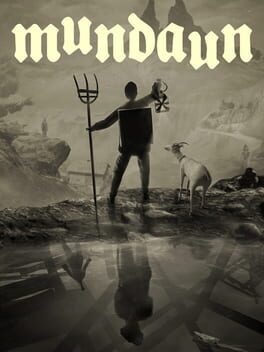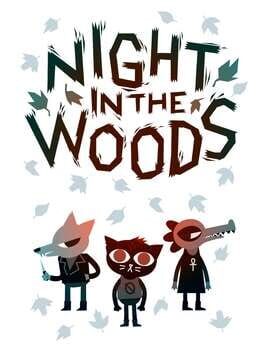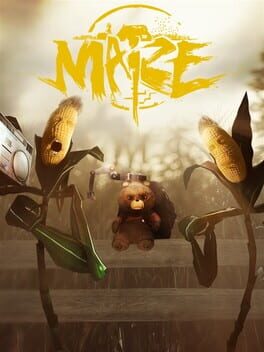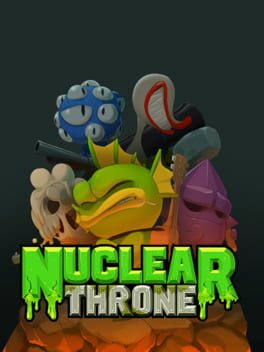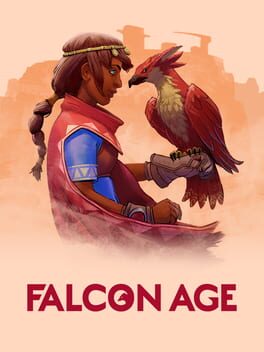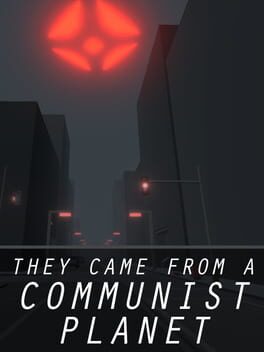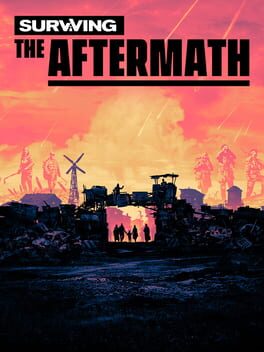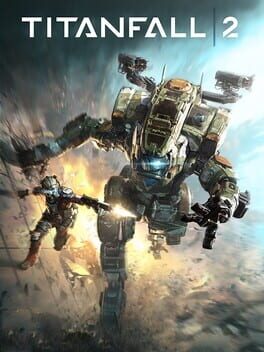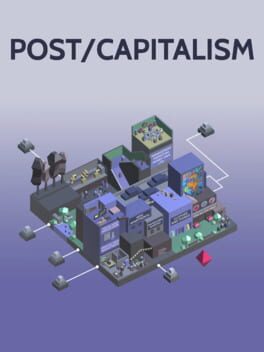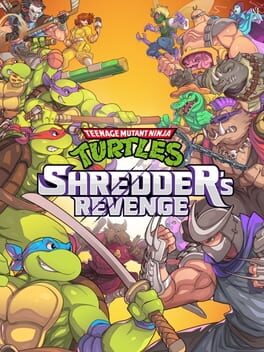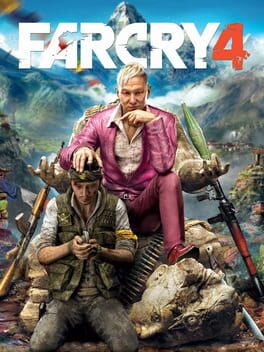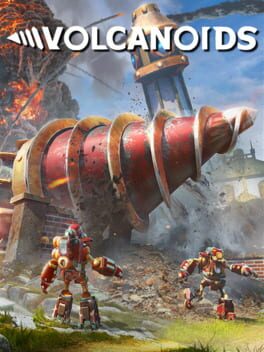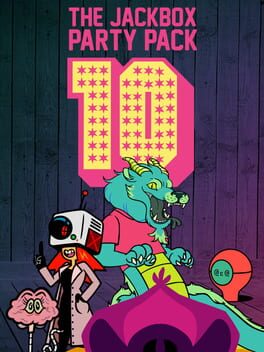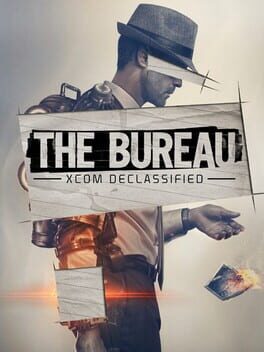astarrgames
2021
Usually when I talk to others who have played this game, we come to the conclusion that it's "an adventure game with horror in it" and that horror is typically a deep sense of dread. That dread is well written in to the story of the game, in which I feared for the town, the people and myself while uncovering the mysteries within Mundaun. I could always feel like worse and worse things would happen in this world, and that there could not be a resolution.
The art style is the immediate selling point of this game, although everything else about it is fantastic. I thought the black-and-white / sepia tones would be boring or ugly to look at for hours, but it is both unique and has been beautifully used throughout lands. There is a distinction between regions you enter and the skybox is typically always visible and gorgeous.
Beyond the artistic choice, what gives this game outstanding visual style is how that the way the player is drawn to environmental scripted moments. There are things that happen throughout the game that you could miss if you weren't watching, and I almost did, but there is a particular way these moments pop out of the background, or the players focus gets pulled to them. I don't know how to explain it, but when these moments happen it is startling and mesmerizing!
Mechanically, the game is a simple adventure, with an appropriate amount of verbs and interactions the player can make. It leans minimally on a survival-horror genre, with limited supplies to use against enemies, but doesn't rely entirely on them. I ended up exploring as much as I could, not because of collecting but because I was craving more storytelling.
This game is also really fun! I enjoyed driving around, meeting new people and walking around the world. I'm not big into adventure game puzzles as I can find them either too easy and boring or too difficult and frustrating. Mundaun found a happy-medium, where every next objective was explained when necessary. If I found something I could interact with and didn't understand, I would eventually be told how I could use it when needed. I didn't end up backtracking a lot to figure out if I forgot or missed something, it wasn't much and did not feel like a chore, as the vehicle is fun, the land is nice to look at, and the creepiness of some environments is pleasant to pass through.
Mundaun is a wonderful game, and after beating it, wanted to revisit for another possible ending - or just to be in this world again, find the secrets I may have missed and be amazed by the visual moments I may have forgotten about. I can't recommend this game enough.
The art style is the immediate selling point of this game, although everything else about it is fantastic. I thought the black-and-white / sepia tones would be boring or ugly to look at for hours, but it is both unique and has been beautifully used throughout lands. There is a distinction between regions you enter and the skybox is typically always visible and gorgeous.
Beyond the artistic choice, what gives this game outstanding visual style is how that the way the player is drawn to environmental scripted moments. There are things that happen throughout the game that you could miss if you weren't watching, and I almost did, but there is a particular way these moments pop out of the background, or the players focus gets pulled to them. I don't know how to explain it, but when these moments happen it is startling and mesmerizing!
Mechanically, the game is a simple adventure, with an appropriate amount of verbs and interactions the player can make. It leans minimally on a survival-horror genre, with limited supplies to use against enemies, but doesn't rely entirely on them. I ended up exploring as much as I could, not because of collecting but because I was craving more storytelling.
This game is also really fun! I enjoyed driving around, meeting new people and walking around the world. I'm not big into adventure game puzzles as I can find them either too easy and boring or too difficult and frustrating. Mundaun found a happy-medium, where every next objective was explained when necessary. If I found something I could interact with and didn't understand, I would eventually be told how I could use it when needed. I didn't end up backtracking a lot to figure out if I forgot or missed something, it wasn't much and did not feel like a chore, as the vehicle is fun, the land is nice to look at, and the creepiness of some environments is pleasant to pass through.
Mundaun is a wonderful game, and after beating it, wanted to revisit for another possible ending - or just to be in this world again, find the secrets I may have missed and be amazed by the visual moments I may have forgotten about. I can't recommend this game enough.
2019
What stands out most is the writing and RPG mechanics.
There's a lot of reading and complimentary voice acting to introduce characters or scripted segments. The writing describes the fantasy world in Disco Elysium, the characters you talk to, and a lot of dialogue. I think this is why there were some negative reviews of DE, so know what you're signing up for. The game is conversations and dice-rolling to determine if you're achieving an action or dialogue option, then walking to another area to do the same with an invisible timer.
The fantasy world of DE is fantasy. There are some parallels to our real world geopolitically and there is some conversation between the two worlds definitely, but they're not all direct. Non-spoiler example is the reference to a political philosopher in the world of DE, Kras Mazov, who is almost a direct reference to Karl Marx. However these are not always direct references or placeholders and stand-ins our world and it shouldn't be read as such. So, DE can be accessible without knowledge of our own social or political histories here on Earth, which is a benefit for a non-history buff who wants to play a detective RPG. The story and the world feel complete and lived in, which also makes me excited for more stories in the Disco Elysium universe.
The characters are defined as such that you can fit the role of someone who admires or detests them, as well as the player's feelings towards them. You'll talk to people a lot, and that is the game, and where the writing is forefront. You can learn about your character and play their role, with just a little continuity errors - as events happen or you take on a persona, so do the conversations. It's the first option, but I really recommend Encyclopedia as a first character so you learn more about the world as you discover your character.
The gameplay is a bit of running around, figuring out places to go, more people to talk to, trying to resolve an issue, hitting a wall, gaining experience and trying again. It is almost a "bottle episode" where you're on the same coastline town between a few buildings for the entirety of the game, but there is so much happening, with many subplots and metaphorical (and actual) doors opening that every day or level-up you gain will feel like a new place. When the story resolves, it's absolutely possible to replay the game and discover or complete quests you didn't have access to, play in the new Hardcore Mode, and role play as an absolutely different person.
The artwork is a watercolour expressionist that is beautiful to look at, which you'll be looking at a lot of the same landscape. Watch a bit to see if you like and understand what you're looking at. There's also a helpful highlights over objects and people can be interacted with, and some animated sequences to add variation to the flow of the game. There is minor tearing when zooming out or changing animations, which is barely noticeable and doesn't impact the gameplay. The music is also very well done to be both interesting and ambient, so that the loop doesn't become annoying or frustrating. You feel when you're in a dance-y or lounge-y spot, or you feel like you're on coastline because of the ambience sounds.
I really felt DE was an emotional roller coaster with humorous bits deriving from situations or dialogue, frustrating because you're dealing with someone or something you want to respond to outside of your role, sad because of how awful and sad everyone and the world can be, and satisfying when you start to check-off in-game goals. I'm not very experienced in detective games and plan on diving into them now after playing through DE, so I'm not sure if this is an introductory game in the genre, but as a stand-alone game it is absolutely worth the play through.
There's a lot of reading and complimentary voice acting to introduce characters or scripted segments. The writing describes the fantasy world in Disco Elysium, the characters you talk to, and a lot of dialogue. I think this is why there were some negative reviews of DE, so know what you're signing up for. The game is conversations and dice-rolling to determine if you're achieving an action or dialogue option, then walking to another area to do the same with an invisible timer.
The fantasy world of DE is fantasy. There are some parallels to our real world geopolitically and there is some conversation between the two worlds definitely, but they're not all direct. Non-spoiler example is the reference to a political philosopher in the world of DE, Kras Mazov, who is almost a direct reference to Karl Marx. However these are not always direct references or placeholders and stand-ins our world and it shouldn't be read as such. So, DE can be accessible without knowledge of our own social or political histories here on Earth, which is a benefit for a non-history buff who wants to play a detective RPG. The story and the world feel complete and lived in, which also makes me excited for more stories in the Disco Elysium universe.
The characters are defined as such that you can fit the role of someone who admires or detests them, as well as the player's feelings towards them. You'll talk to people a lot, and that is the game, and where the writing is forefront. You can learn about your character and play their role, with just a little continuity errors - as events happen or you take on a persona, so do the conversations. It's the first option, but I really recommend Encyclopedia as a first character so you learn more about the world as you discover your character.
The gameplay is a bit of running around, figuring out places to go, more people to talk to, trying to resolve an issue, hitting a wall, gaining experience and trying again. It is almost a "bottle episode" where you're on the same coastline town between a few buildings for the entirety of the game, but there is so much happening, with many subplots and metaphorical (and actual) doors opening that every day or level-up you gain will feel like a new place. When the story resolves, it's absolutely possible to replay the game and discover or complete quests you didn't have access to, play in the new Hardcore Mode, and role play as an absolutely different person.
The artwork is a watercolour expressionist that is beautiful to look at, which you'll be looking at a lot of the same landscape. Watch a bit to see if you like and understand what you're looking at. There's also a helpful highlights over objects and people can be interacted with, and some animated sequences to add variation to the flow of the game. There is minor tearing when zooming out or changing animations, which is barely noticeable and doesn't impact the gameplay. The music is also very well done to be both interesting and ambient, so that the loop doesn't become annoying or frustrating. You feel when you're in a dance-y or lounge-y spot, or you feel like you're on coastline because of the ambience sounds.
I really felt DE was an emotional roller coaster with humorous bits deriving from situations or dialogue, frustrating because you're dealing with someone or something you want to respond to outside of your role, sad because of how awful and sad everyone and the world can be, and satisfying when you start to check-off in-game goals. I'm not very experienced in detective games and plan on diving into them now after playing through DE, so I'm not sure if this is an introductory game in the genre, but as a stand-alone game it is absolutely worth the play through.
2017
2016
This review contains spoilers
I was enjoying Maize, and I wanted to keep enjoying Maize. After 2 hours, I had to give it up.
I went into Maize not knowing what to expect. It almost looked like a horror game, and I was just waiting for something bad to happen. The music is pleasant ambience with some eeriness to it, and the setting is cryptic. Pretty soon, the jokes started to hit, and that's what this game is about. It's a linear adventure in the vein of 90's point-and-click adventure games, where everything you can actually interact with is highlighted, and serves an eventual purpose.
The game itself is a very pretty vehicle for delivering this story and humour, which had been great! For 2 hours. There's great comedy about the meta-game of the genre you're playing in, and there's definitely funny punchlines to putting together puzzles and what the outcome is.
There's a lot of great surrealist humour, even in the situation itself, that is reminiscent of the greats like Monty Python or Kids in the Hall. You're in a weird predicament, doing odd things, with strange material left behind from other humans, and everyone just seems to deal with it.
Humour is of course subjective to anyone who experiences it, and I'd like to explain why the fun suddenly stopped for me beyond bad jokes.
I was having fun with the game, until I felt like I spent way too long in an underground labyrinth of sewer-like walls, or white walls, surrounded by junk. A good joke is that the same type of room was planted into this laboratory, but as a player, it was repetitive and frustrating. I was actually getting motion sickness I don't experience often with first-person perspective. In this case it was because I was running through an environment, swinging around hallways, and disorienting myself trying to remember where my last objective was.
[b]Spoilers.[/b] The second one was the jokes stopped being funny. An hour in, I met [spoiler]the teddy bear and started to read through notes left by the scientist and his venture capitalist business partner.[/spoiler] They were each funny at first, from the situations each of them provided, having a [spoiler]Russian teddy bear follow you around, and the venture capitalist think they're building a theme park out of a scientific experimentation centre.[/spoiler]
This is right when the game pivots to meta-gameplay jokes, funny situations, and absurdist comedy to insult humour. Sure, [spoiler]the lab you're stuck in is so poorly designed and the venture capitalist keeps screwing everything up,[/spoiler] but [i]every single joke[/i] boils down to calling the NPCs you don't see and the player-character "stupid," "idiot," "moron" and whatever else to demean their intelligence. It was funny for the first couple of minutes, but that was the running joke - everyone's a stupid idiot, and that's all I hear.
After a full hour of being called a stupid idiot for the hundredth time in a game designed to make me pick up a unicorn-shaped candle, I gave up. I'll just read the ending, which I'm sure will be a bit of a giggle, but I'm not enduring the boring maze and insult comedy anymore. Like, Triumph the Insult Comic Dog is funny in 2-5 minute segments, but this becomes insufferable after an hour.
That all written, I do believe the team does have talent and wits that given another scenario would work. I look forward to Skully and would check that out!
I went into Maize not knowing what to expect. It almost looked like a horror game, and I was just waiting for something bad to happen. The music is pleasant ambience with some eeriness to it, and the setting is cryptic. Pretty soon, the jokes started to hit, and that's what this game is about. It's a linear adventure in the vein of 90's point-and-click adventure games, where everything you can actually interact with is highlighted, and serves an eventual purpose.
The game itself is a very pretty vehicle for delivering this story and humour, which had been great! For 2 hours. There's great comedy about the meta-game of the genre you're playing in, and there's definitely funny punchlines to putting together puzzles and what the outcome is.
There's a lot of great surrealist humour, even in the situation itself, that is reminiscent of the greats like Monty Python or Kids in the Hall. You're in a weird predicament, doing odd things, with strange material left behind from other humans, and everyone just seems to deal with it.
Humour is of course subjective to anyone who experiences it, and I'd like to explain why the fun suddenly stopped for me beyond bad jokes.
I was having fun with the game, until I felt like I spent way too long in an underground labyrinth of sewer-like walls, or white walls, surrounded by junk. A good joke is that the same type of room was planted into this laboratory, but as a player, it was repetitive and frustrating. I was actually getting motion sickness I don't experience often with first-person perspective. In this case it was because I was running through an environment, swinging around hallways, and disorienting myself trying to remember where my last objective was.
[b]Spoilers.[/b] The second one was the jokes stopped being funny. An hour in, I met [spoiler]the teddy bear and started to read through notes left by the scientist and his venture capitalist business partner.[/spoiler] They were each funny at first, from the situations each of them provided, having a [spoiler]Russian teddy bear follow you around, and the venture capitalist think they're building a theme park out of a scientific experimentation centre.[/spoiler]
This is right when the game pivots to meta-gameplay jokes, funny situations, and absurdist comedy to insult humour. Sure, [spoiler]the lab you're stuck in is so poorly designed and the venture capitalist keeps screwing everything up,[/spoiler] but [i]every single joke[/i] boils down to calling the NPCs you don't see and the player-character "stupid," "idiot," "moron" and whatever else to demean their intelligence. It was funny for the first couple of minutes, but that was the running joke - everyone's a stupid idiot, and that's all I hear.
After a full hour of being called a stupid idiot for the hundredth time in a game designed to make me pick up a unicorn-shaped candle, I gave up. I'll just read the ending, which I'm sure will be a bit of a giggle, but I'm not enduring the boring maze and insult comedy anymore. Like, Triumph the Insult Comic Dog is funny in 2-5 minute segments, but this becomes insufferable after an hour.
That all written, I do believe the team does have talent and wits that given another scenario would work. I look forward to Skully and would check that out!
2015
It took me 18 hours before I got my butt on the throne, but every run was fun and worth it.
For its pixel art, it's pretty and it's capable of expressing the wonder and grossness of this world. The music rocks and moves with the energy of the game; guitars are blasting while you're blasting and mellows when the carnage is over.
It's pretty darn difficult and even the slightest misstep is punished immediately in the game. There's a learning curve to understanding the environments, enemies and weapons as they're introduced to the player, without much explanation. Sometimes, I'd fire a gun at a wall just to see what it actually does, or carefully approach an inanimate object in a new land just in case it causes damage. There's not much explained to the player, so they have to try to learn from their failures - or get a definitive answer through a wiki.
However, every run is incredibly smooth to get in to. After a death, I curse my mistake, think "that wasn't fair!", correct myself (it was fair), then immediately hit re-try and I'm back in the action. The repetition is diffused by the randomly generated levels, vast array of weapons, and secrets to find throughout each run. Sometimes I find myself craving another try for the throne, which is convenient because of how quick this game streamlines getting into the fun of it all.
For its pixel art, it's pretty and it's capable of expressing the wonder and grossness of this world. The music rocks and moves with the energy of the game; guitars are blasting while you're blasting and mellows when the carnage is over.
It's pretty darn difficult and even the slightest misstep is punished immediately in the game. There's a learning curve to understanding the environments, enemies and weapons as they're introduced to the player, without much explanation. Sometimes, I'd fire a gun at a wall just to see what it actually does, or carefully approach an inanimate object in a new land just in case it causes damage. There's not much explained to the player, so they have to try to learn from their failures - or get a definitive answer through a wiki.
However, every run is incredibly smooth to get in to. After a death, I curse my mistake, think "that wasn't fair!", correct myself (it was fair), then immediately hit re-try and I'm back in the action. The repetition is diffused by the randomly generated levels, vast array of weapons, and secrets to find throughout each run. Sometimes I find myself craving another try for the throne, which is convenient because of how quick this game streamlines getting into the fun of it all.
2019
This game has great discourse! It also has very cute and unique mechanics.
However, it's limited. It feels like an introductory game to something that could have been larger. It also has a lot of jankyness that sometimes impacts the mechanics.
Overall, Falcon Age is a very good and impressive game, but I'm mostly impressed by the writing and how deep it goes into explaining colonialist and resistance.
However, it's limited. It feels like an introductory game to something that could have been larger. It also has a lot of jankyness that sometimes impacts the mechanics.
Overall, Falcon Age is a very good and impressive game, but I'm mostly impressed by the writing and how deep it goes into explaining colonialist and resistance.
I played probably way too long through a campaign of this game, but I don't think it's my fault.
Surviving the Aftermath is a great game as a city-builder and colony management simulator that pulls a lot from Frostpunk and to a lesser extent, games in The Settlers series. However, there's a 4X layer that could potentially be a good and interesting dynamic, is boring and frustrating for the most part.
The towns you can build have decent logistics and offer multiple paths to production, which is always nice to see as opposed to linear ones. For example, clothing requires some kind of fibre, however those fibre sources can be animal or plant farmed from different sources. It allows for diversity of play style within a single campaign.
Scientific unlocks, especially for buildings, are a relief when achieved. They give the player an advantage in the push-and-pull struggle of building upon a toxic landscape.
There are some hidden mechanics of the colony sim that I didn't understand. For example: outside of narrated events that include disease outbreaks, the colonists would suffer from them. I didn't understand why, and the game's community didn't either, as they offered suggestions of "maybe don't put buildings so close together." This confusion is further exasperated when watching colonists develop their own pathing, sometimes through hazards, or sometimes far away from their work sites, home and entertainment.
Scrolling through the UI to get specific information is also a frustration. Some important information is hidden under layers and layers of menus, then disappearing when engaging in the map. Re-opening menus doesn't pick up where you left off and the job/home views are unclickable, leaving management tasks such as finding out where people are unhappy in the colony nearly impossible. Even games like Tropico have made the UI in these types of city-builders easily accessible and useful for micromanaging a population.
The different stories that pop up can be categorized into decisions that give resources or buffs. The ones that aren't part of the mainline story are often repeated, which is unfortunate - but it could have been how long I spent with the game.
That leads to my biggest complaint of this game: the 4X layer. There's a map you can send specialized colonists throughout, and there's a lot going on in there. It's how the colonies can consistently grow, the only way to gather certain resources, or participate in the actual story of the game. I didn't realize the latter, so I put off story missions until I was comfortable with my city being built.
Then that lead into the back-half of the game being a long drag until the game completed itself, which is a common complaint. If I had of known I would be waiting on automated resource-gathering outside of direct gameplay for the last 10-15 hours, I would have engaged with the 4X layer more frequently.
Those complaints aside, this is a fun city-builder that I may engage with again if the DLC add more interesting stories, mechanics, buildings and other aspects to an otherwise fine game.
Surviving the Aftermath is a great game as a city-builder and colony management simulator that pulls a lot from Frostpunk and to a lesser extent, games in The Settlers series. However, there's a 4X layer that could potentially be a good and interesting dynamic, is boring and frustrating for the most part.
The towns you can build have decent logistics and offer multiple paths to production, which is always nice to see as opposed to linear ones. For example, clothing requires some kind of fibre, however those fibre sources can be animal or plant farmed from different sources. It allows for diversity of play style within a single campaign.
Scientific unlocks, especially for buildings, are a relief when achieved. They give the player an advantage in the push-and-pull struggle of building upon a toxic landscape.
There are some hidden mechanics of the colony sim that I didn't understand. For example: outside of narrated events that include disease outbreaks, the colonists would suffer from them. I didn't understand why, and the game's community didn't either, as they offered suggestions of "maybe don't put buildings so close together." This confusion is further exasperated when watching colonists develop their own pathing, sometimes through hazards, or sometimes far away from their work sites, home and entertainment.
Scrolling through the UI to get specific information is also a frustration. Some important information is hidden under layers and layers of menus, then disappearing when engaging in the map. Re-opening menus doesn't pick up where you left off and the job/home views are unclickable, leaving management tasks such as finding out where people are unhappy in the colony nearly impossible. Even games like Tropico have made the UI in these types of city-builders easily accessible and useful for micromanaging a population.
The different stories that pop up can be categorized into decisions that give resources or buffs. The ones that aren't part of the mainline story are often repeated, which is unfortunate - but it could have been how long I spent with the game.
That leads to my biggest complaint of this game: the 4X layer. There's a map you can send specialized colonists throughout, and there's a lot going on in there. It's how the colonies can consistently grow, the only way to gather certain resources, or participate in the actual story of the game. I didn't realize the latter, so I put off story missions until I was comfortable with my city being built.
Then that lead into the back-half of the game being a long drag until the game completed itself, which is a common complaint. If I had of known I would be waiting on automated resource-gathering outside of direct gameplay for the last 10-15 hours, I would have engaged with the 4X layer more frequently.
Those complaints aside, this is a fun city-builder that I may engage with again if the DLC add more interesting stories, mechanics, buildings and other aspects to an otherwise fine game.
2016
This is a gem.
It has one of the few single-player campaigns for first person shooters that are so perfectly executed. There's so much going on in this game to highlight how well it fits into this package.
This game almost feels like a bunch of experiments gone absolutely right. The FPS combat is in two modes that feel very new and refreshing for the genre. On-the-ground combat goes beyond military shooters and puts in wall-running for both puzzles and combat. The mech combat, although not like a simulator, feels great with such diversity of weapons and abilities - they also nail how stompy and bulky riding a large robot can feel.
The level design also adds to that feeling that they're experimenting with what they can make. It's almost as if a group of different teams looked at these mechanics and took a bizzare chance to craft interesting and very exciting scenarios. No setting is overdone, but every time I'm given a unique ability or item, I am craving more of it. I want to go back and replay every single mission.
I didn't expect much from the story, as it feels like another "underdog soldier caught behind enemy lines" story. However, all the characters have a certain charm that can make you love them or love to hate them. The quips and situations between the mech and soldier are so perfectly done, I laughed out loud and did feel sympathy within this short time for them.
The world itself seems lived in, and this 5 hour campaign really makes you feel as a simple part of it. I thought I was getting into something with a lot of boring lore - or a military conflict I don't care much about. I did begin to feel like a hero of a single story among many stories that can exist here, which makes me want to come back and revisit it.
Playing through the campaign really brought me back to the first time I played through Half-Life, or Metro. They nail a FPS campaign and heighten the experience. This is also a brilliant precursor to Apex Legends, and I will be very excited for anything Respawn puts out in this world.
It has one of the few single-player campaigns for first person shooters that are so perfectly executed. There's so much going on in this game to highlight how well it fits into this package.
This game almost feels like a bunch of experiments gone absolutely right. The FPS combat is in two modes that feel very new and refreshing for the genre. On-the-ground combat goes beyond military shooters and puts in wall-running for both puzzles and combat. The mech combat, although not like a simulator, feels great with such diversity of weapons and abilities - they also nail how stompy and bulky riding a large robot can feel.
The level design also adds to that feeling that they're experimenting with what they can make. It's almost as if a group of different teams looked at these mechanics and took a bizzare chance to craft interesting and very exciting scenarios. No setting is overdone, but every time I'm given a unique ability or item, I am craving more of it. I want to go back and replay every single mission.
I didn't expect much from the story, as it feels like another "underdog soldier caught behind enemy lines" story. However, all the characters have a certain charm that can make you love them or love to hate them. The quips and situations between the mech and soldier are so perfectly done, I laughed out loud and did feel sympathy within this short time for them.
The world itself seems lived in, and this 5 hour campaign really makes you feel as a simple part of it. I thought I was getting into something with a lot of boring lore - or a military conflict I don't care much about. I did begin to feel like a hero of a single story among many stories that can exist here, which makes me want to come back and revisit it.
Playing through the campaign really brought me back to the first time I played through Half-Life, or Metro. They nail a FPS campaign and heighten the experience. This is also a brilliant precursor to Apex Legends, and I will be very excited for anything Respawn puts out in this world.
2017
It's a short, edutainment clicker/city-builder that I've never really seen together before.
Post/Capitalism, while offering a clear presentation of the hellscape of capitalism within a condensed slice of an urban environment, also offers something different. That is socialist economics that are often misrepresented, not understood, ignored or invisible in popular media and education.
How the game discusses capitalism is something more advanced, better articulated, and presented prettier than most elementary textbooks I've seen. For this, it's outstanding educational tool for exploring what our cities look like, but it could also exist as a visual aid to something like Marx's Capital for the first half, and Kropotkin's Mutual Aid in the latter.
The city the player builds is a small slice of a beautiful socialist or anarchist economy. While it doesn't explain the different tendencies or strategies to implement such an economy, it still does what a lot of multimedia won't do: demonstrate what the world can look like when we transition out of capitalism.
Unfortunately, there were some mechanics I was confused about, and I had to watch someone finish the game for the last couple of buildings. I thought I went through the appropriate order of operations to finish the game, but I think I left the game without it completing and changing colour.
Overall, this is an important game that I would highly recommend to anyone interested in how a video game can discuss possible futures, to teachers who want an interactive element to their coursework, and anyone who wants a narrative on socialism from a source that actually understands the economics and not some political talking head on mainstream media.
Post/Capitalism, while offering a clear presentation of the hellscape of capitalism within a condensed slice of an urban environment, also offers something different. That is socialist economics that are often misrepresented, not understood, ignored or invisible in popular media and education.
How the game discusses capitalism is something more advanced, better articulated, and presented prettier than most elementary textbooks I've seen. For this, it's outstanding educational tool for exploring what our cities look like, but it could also exist as a visual aid to something like Marx's Capital for the first half, and Kropotkin's Mutual Aid in the latter.
The city the player builds is a small slice of a beautiful socialist or anarchist economy. While it doesn't explain the different tendencies or strategies to implement such an economy, it still does what a lot of multimedia won't do: demonstrate what the world can look like when we transition out of capitalism.
Unfortunately, there were some mechanics I was confused about, and I had to watch someone finish the game for the last couple of buildings. I thought I went through the appropriate order of operations to finish the game, but I think I left the game without it completing and changing colour.
Overall, this is an important game that I would highly recommend to anyone interested in how a video game can discuss possible futures, to teachers who want an interactive element to their coursework, and anyone who wants a narrative on socialism from a source that actually understands the economics and not some political talking head on mainstream media.
I played a lot of this on the couch with friends and family. Everyone had a great time from the various skill levels and interest in the game's characters and genre.
I grew up with TMNT through playing the arcade games and regularly re-watching the TV show and movies in the 90's. As an adult, I don't feel any loyalty to a brand or franchise, let alone a comic adaptation that has had over 30 or 40 years or re-imagining.
In terms of nostalgia, Shredder's Revenge does an incredible job of capturing that 90's beat-em-up genre. This has the look and mannerisms of the arcade and NES games, as if the designers knew exactly what a direct continuation of those games would be. TMNT always had a strange way these ridiculous characters move through a city, and about 30 years later, there doesn't seem like much of a difference. A part of me would look at a parked car with caution, or suspected that its mechanic was a Foot Clan soldier in disguise, only to be assured that I was correct - these weird creatures are going to do weird things in this world. It's full of the charm and humour of the original series, while feeling fresh
It's such a great improvement on the original model of beat-em-ups too. The D-pads of the NES and joystick arcade games were sticky, forcing players to commit to directions as if diagonal walking didn't exist and were punished severely for it. That's replaced by smooth and comfortable controls, in a forgiving game with escalating difficulty.
Implementing what the genre has developed over the past 30 years is very welcoming. There's meters that fill up, new movesets to unlock, as well as challenges and progression systems that allow this game to be replayable.
Online multiplayer is a good feature, but really a mixed bag when the design allows for griefing - players being absent, ignoring revives, or pushing against the screen to prevent progression. There are such nice sound and level designs (the soundtrack is great!), there's definitely some memorable levels, while some are absolutely forgettable.
Overall this is an incredible game and I'm appreciative that the family will get together to play it. Also, there's upcoming DLC to be excited for.
I grew up with TMNT through playing the arcade games and regularly re-watching the TV show and movies in the 90's. As an adult, I don't feel any loyalty to a brand or franchise, let alone a comic adaptation that has had over 30 or 40 years or re-imagining.
In terms of nostalgia, Shredder's Revenge does an incredible job of capturing that 90's beat-em-up genre. This has the look and mannerisms of the arcade and NES games, as if the designers knew exactly what a direct continuation of those games would be. TMNT always had a strange way these ridiculous characters move through a city, and about 30 years later, there doesn't seem like much of a difference. A part of me would look at a parked car with caution, or suspected that its mechanic was a Foot Clan soldier in disguise, only to be assured that I was correct - these weird creatures are going to do weird things in this world. It's full of the charm and humour of the original series, while feeling fresh
It's such a great improvement on the original model of beat-em-ups too. The D-pads of the NES and joystick arcade games were sticky, forcing players to commit to directions as if diagonal walking didn't exist and were punished severely for it. That's replaced by smooth and comfortable controls, in a forgiving game with escalating difficulty.
Implementing what the genre has developed over the past 30 years is very welcoming. There's meters that fill up, new movesets to unlock, as well as challenges and progression systems that allow this game to be replayable.
Online multiplayer is a good feature, but really a mixed bag when the design allows for griefing - players being absent, ignoring revives, or pushing against the screen to prevent progression. There are such nice sound and level designs (the soundtrack is great!), there's definitely some memorable levels, while some are absolutely forgettable.
Overall this is an incredible game and I'm appreciative that the family will get together to play it. Also, there's upcoming DLC to be excited for.
2014
I haven't played much in the series, as my first introduction was Blood Dragon and then the fifth in the series. If this were my first Far Cry game, I would have been ecstatic to put about 40 hours into this game, but even without completing most of the collectables and achievements, it's a real drag. It's a very pretty and well-made drag, though.
Most of Ubisoft's games contribute to a sense of open-world fatigue. Far Cry 4's map is huge, pretty and well-designed, but traversing it over and over again can be a chore. That space is filled with repetitive side quests or unscripted events that redirect the player's attention (or interrupt what they were doing), and that's if you're ignoring the collectibles. Not only that, but to span the massive map, you'll probably have to drive and listen to the same radio DJ set from the start over and over again - with some pretty decent music scattered in there.
It's so oddly paced too. I didn't even attempt to grind, but rather simply unlock guns by collecting and finishing some quests. About 60% into the game, I had maxed out my XP, money and karma. Alongside a few minor bugs, those are the technical problems I have with this game.
Then there's the story, and what an "apolitical" Ubisoft tends to do is tell the most middling political stories with an undertone of authoritarian capitalism as the default human condition. If they're not poorly explaining the horrors of fascism, they're writing in nihilistic defeatism, and that there are no hope for revolutionary struggles. While it's not only ahistorical and inaccurate, they're playing in a space of highly budgeted storytelling with potentially hundreds of designers and writers, but end up rehashing Thomas Hobbes' Leviathan - or status quo centrism in lieu of creative and speculative fiction.
Then again, Ubisoft has been run by abusers and probably fascists, which could explain this kind of narrative in their games.
Most of Ubisoft's games contribute to a sense of open-world fatigue. Far Cry 4's map is huge, pretty and well-designed, but traversing it over and over again can be a chore. That space is filled with repetitive side quests or unscripted events that redirect the player's attention (or interrupt what they were doing), and that's if you're ignoring the collectibles. Not only that, but to span the massive map, you'll probably have to drive and listen to the same radio DJ set from the start over and over again - with some pretty decent music scattered in there.
It's so oddly paced too. I didn't even attempt to grind, but rather simply unlock guns by collecting and finishing some quests. About 60% into the game, I had maxed out my XP, money and karma. Alongside a few minor bugs, those are the technical problems I have with this game.
Then there's the story, and what an "apolitical" Ubisoft tends to do is tell the most middling political stories with an undertone of authoritarian capitalism as the default human condition. If they're not poorly explaining the horrors of fascism, they're writing in nihilistic defeatism, and that there are no hope for revolutionary struggles. While it's not only ahistorical and inaccurate, they're playing in a space of highly budgeted storytelling with potentially hundreds of designers and writers, but end up rehashing Thomas Hobbes' Leviathan - or status quo centrism in lieu of creative and speculative fiction.
Then again, Ubisoft has been run by abusers and probably fascists, which could explain this kind of narrative in their games.
2019
As soon as I launched this game, I was immediately concerned I installed a generic, asset-flipped task simulator. The high-definition polygonal landscape, buildings and equipment seemed that way.
Digging deeper (pun), it's actually a pretty unique and well-constructed base-builder FPS in early access with some jankyness. I was reminded more of the time I enjoyed The Signal From Tölva, with some caveats.
From an economy-simulator perspective, this is incredibly shallow (pun). All the manufacturing in this game follows a simple: level 1 mineral and level 1 ore make level 1 equipment, upgrades and devices. This goes up to level 3, and the equipment and enemy encounters scale each time in somewhat interesting ways.
I played this game in solo, and a lot of the FPS aspects were very difficult, even on one of the lowest difficulties. The scaling of difficulty is kind of interesting because new weapons and enemy types are introduced, but the final stages depend heavily on throwing dozens of enemies in waves while trying to meet objectives.
There's some minor bugs that weren't too intrusive but worth mentioning. For example, hitboxes on enemies and landscapes sometimes didn't really add up sometimes, and the weapons and some movement over hills feel kind of clunky and sticky.
I could see myself really enjoying this more if I had played cooperative with some friends, running around a base doing repairs while others collect resources or organize a raid on an enemy base. I've played a lot of Deep Rock Galactic, which has a lot of similarities with this, and I would recommend that more for a cooperative miner-shooter.
While it has been in early access for 4 years with frequent and significant updates from what I can see, I don't know what it would need for me to be excited and revisit the game at release. It is a pretty unique concept and looks actually decent, but it doesn't really satisfy me as either a simulator or shooter.
Digging deeper (pun), it's actually a pretty unique and well-constructed base-builder FPS in early access with some jankyness. I was reminded more of the time I enjoyed The Signal From Tölva, with some caveats.
From an economy-simulator perspective, this is incredibly shallow (pun). All the manufacturing in this game follows a simple: level 1 mineral and level 1 ore make level 1 equipment, upgrades and devices. This goes up to level 3, and the equipment and enemy encounters scale each time in somewhat interesting ways.
I played this game in solo, and a lot of the FPS aspects were very difficult, even on one of the lowest difficulties. The scaling of difficulty is kind of interesting because new weapons and enemy types are introduced, but the final stages depend heavily on throwing dozens of enemies in waves while trying to meet objectives.
There's some minor bugs that weren't too intrusive but worth mentioning. For example, hitboxes on enemies and landscapes sometimes didn't really add up sometimes, and the weapons and some movement over hills feel kind of clunky and sticky.
I could see myself really enjoying this more if I had played cooperative with some friends, running around a base doing repairs while others collect resources or organize a raid on an enemy base. I've played a lot of Deep Rock Galactic, which has a lot of similarities with this, and I would recommend that more for a cooperative miner-shooter.
While it has been in early access for 4 years with frequent and significant updates from what I can see, I don't know what it would need for me to be excited and revisit the game at release. It is a pretty unique concept and looks actually decent, but it doesn't really satisfy me as either a simulator or shooter.
Jackbox Party Pack 10 is a real test with these party packs. It's a test of what new experiences will work with your friend group, what will work with your phone and what works generally as a gaming concept.
I was able to play the >3 player games a couple of times each, before a significant update on November 15, 2023. Rating each of these packs requires a breakdown of each game, so here's what we thought of the 10th one in the series.
Fixy Text was loved by everyone, but me. I believe this is where the device bugs hit the hardest. It's an interesting design that is kind of like Job Job and Quiplash from other packs. The fun lies in how interesting, creative and funny your friend group is, with some minimal support from the game. The game provides some prompting, but doesn't rely upon it, so role-playing elements depend on the group you're with, like Roomerang or Hypnotorious from this pack. I experienced a lot of bugs while playing, including my cursor and typed letters being randomly applied in the text message, making me a chaotic disaster to play with. Everyone else really loved freestyling text messages with minimal prompts and having their wit acknowledged by others gifting them points.
Tee K.O. 2 was a hit among my friend group, and this has definite quality of life improvements over the first. My problems with the first one are mostly resolved in this one, you can re-use text and pictures that weren't used in previous rounds. However, I really didn't like the last round re-using the shirts we've already made and won with - our group really enjoys the surprise and hilarity from introducing new shirts, but this is a new favourite of ours despite this issue.
Dodo Re Mi is a highlight. It's Guitar Hero for your phone, which I'm very surprised hasn't been done yet. It can be played solo or with one other person, and has been incredible fun just for my partner and I to play through. It's what we've spent the most time with and had the most connection to from both myself who has mastered most Guitar Hero games and someone who has never played a rhythm game before. This could have been an entirely standalone game with the amount of work going into it. However, my Samsung A13 really struggled, often skipping, lagging and freezing during the game, or having inputs not recognized or seen, but that's probably all on my phone model.
Time Jinx is a decent trivia game that is something closer to Guesspionage than a You Don't Know Jack or Trivia Murder Party. It makes good use to contemporary popular cultural historical events for trivia questions. It also has decent for rubberbanding for players who either struggled to remember timelines or guessed poorly. It's fun and interesting, albeit not as much as their other trivia games.
Hypnotorious could potentially be the weakest one of the pack. It relies heavily on the group's roleplaying ability, which mine isn't good at, but also has a somewhat confusing premise and prompting. Our group will have to revisit it, but some of them did enjoy it.
The November 25th update seems to resolve some issues and improve games somewhat, but I have yet to try. This isn't the weakest of the Jackbox Party Packs, but it's far from the strongest.
I was able to play the >3 player games a couple of times each, before a significant update on November 15, 2023. Rating each of these packs requires a breakdown of each game, so here's what we thought of the 10th one in the series.
Fixy Text was loved by everyone, but me. I believe this is where the device bugs hit the hardest. It's an interesting design that is kind of like Job Job and Quiplash from other packs. The fun lies in how interesting, creative and funny your friend group is, with some minimal support from the game. The game provides some prompting, but doesn't rely upon it, so role-playing elements depend on the group you're with, like Roomerang or Hypnotorious from this pack. I experienced a lot of bugs while playing, including my cursor and typed letters being randomly applied in the text message, making me a chaotic disaster to play with. Everyone else really loved freestyling text messages with minimal prompts and having their wit acknowledged by others gifting them points.
Tee K.O. 2 was a hit among my friend group, and this has definite quality of life improvements over the first. My problems with the first one are mostly resolved in this one, you can re-use text and pictures that weren't used in previous rounds. However, I really didn't like the last round re-using the shirts we've already made and won with - our group really enjoys the surprise and hilarity from introducing new shirts, but this is a new favourite of ours despite this issue.
Dodo Re Mi is a highlight. It's Guitar Hero for your phone, which I'm very surprised hasn't been done yet. It can be played solo or with one other person, and has been incredible fun just for my partner and I to play through. It's what we've spent the most time with and had the most connection to from both myself who has mastered most Guitar Hero games and someone who has never played a rhythm game before. This could have been an entirely standalone game with the amount of work going into it. However, my Samsung A13 really struggled, often skipping, lagging and freezing during the game, or having inputs not recognized or seen, but that's probably all on my phone model.
Time Jinx is a decent trivia game that is something closer to Guesspionage than a You Don't Know Jack or Trivia Murder Party. It makes good use to contemporary popular cultural historical events for trivia questions. It also has decent for rubberbanding for players who either struggled to remember timelines or guessed poorly. It's fun and interesting, albeit not as much as their other trivia games.
Hypnotorious could potentially be the weakest one of the pack. It relies heavily on the group's roleplaying ability, which mine isn't good at, but also has a somewhat confusing premise and prompting. Our group will have to revisit it, but some of them did enjoy it.
The November 25th update seems to resolve some issues and improve games somewhat, but I have yet to try. This isn't the weakest of the Jackbox Party Packs, but it's far from the strongest.
It's a third-person X-Com game in real-time. It's not bad, but I'm sure there's better in the series and in the genre.
I've played the original X-Com games in dos when they came out - except everything after apocalypse. This feels like the new X-Com: Enemy Unknown but in real-time, and commanding a small squad from the ground.
I enjoyed the 1960's atmosphere, and found some scenerios creepy and had a lot of fun with it. It feels like a breeze to get through so far, and too linear to come back and replay - unlike the original X-Coms and the newer ones. Action sequences are also too infrequent for what I like, and there's rarely any aliens outside of staged shoot-outs. I was never expecting one to jump out, or be caught in a room with a couple of them.
I haven't played enough third-person shooters, but I found this one lacking - especially around commands and weapons. ex. I can't tell my squad to take cover and protect themselves, and the weapons are the same series of pistol, rifle, shotgun, sniper rifle, rocket launcher but with different technologies.
My only other complaint is that I felt that running to and out of cover felt sticky (I take cover everywhere), not sticky enough (I need cover but can't get down), and delayed interactions with cover - like rolling or running out. I'm using a keyboard and mouse and heard that gamepads feel better to use.
I think those complaints are too minor to pass up this. It really feels like you're taking a small squad from Enemy Unknown and playing out their combat during the 1960's. Your fights depend on your skill, creativity, how well your command your squad, and your attention to the battlefield. The storyline is interesting, and I'm glad there's options in your interactions - although I don't know how it affects gameplay or the story.
I've played the original X-Com games in dos when they came out - except everything after apocalypse. This feels like the new X-Com: Enemy Unknown but in real-time, and commanding a small squad from the ground.
I enjoyed the 1960's atmosphere, and found some scenerios creepy and had a lot of fun with it. It feels like a breeze to get through so far, and too linear to come back and replay - unlike the original X-Coms and the newer ones. Action sequences are also too infrequent for what I like, and there's rarely any aliens outside of staged shoot-outs. I was never expecting one to jump out, or be caught in a room with a couple of them.
I haven't played enough third-person shooters, but I found this one lacking - especially around commands and weapons. ex. I can't tell my squad to take cover and protect themselves, and the weapons are the same series of pistol, rifle, shotgun, sniper rifle, rocket launcher but with different technologies.
My only other complaint is that I felt that running to and out of cover felt sticky (I take cover everywhere), not sticky enough (I need cover but can't get down), and delayed interactions with cover - like rolling or running out. I'm using a keyboard and mouse and heard that gamepads feel better to use.
I think those complaints are too minor to pass up this. It really feels like you're taking a small squad from Enemy Unknown and playing out their combat during the 1960's. Your fights depend on your skill, creativity, how well your command your squad, and your attention to the battlefield. The storyline is interesting, and I'm glad there's options in your interactions - although I don't know how it affects gameplay or the story.
